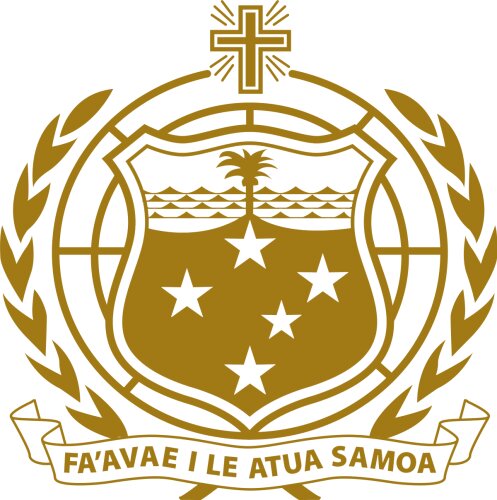Best Juvenile Law Lawyers in Apia
Share your needs with us, get contacted by law firms.
Free. Takes 2 min.
List of the best lawyers in Apia, Samoa
About Juvenile Law in Apia, Samoa
Juvenile Law in Apia, Samoa, focuses on legal issues affecting minors, typically defined as individuals under the age of 18. This area of law aims to balance the need for accountability with the opportunity for rehabilitation and growth. Juvenile Law encompasses a range of issues, including criminal offenses committed by minors, child welfare, and the protection of children's rights. The legal system in Apia works with various stakeholders, including law enforcement, social services, and the judiciary, to handle matters involving minors in a manner that reflects cultural values and legal principles.
Why You May Need a Lawyer
There are several common situations where individuals in Apia might require legal assistance in the field of Juvenile Law:
- Criminal Charges: If a minor is accused of a crime, legal representation can help navigate the juvenile justice system and ensure a fair process.
- Custody and Guardianship Issues: Legal advice may be necessary for disputes regarding the custody or guardianship of minors.
- Child Welfare Concerns: Cases involving the protection of children from neglect or abuse often require legal intervention.
- Adoption: Legal guidance is essential for families seeking to adopt a child to ensure compliance with laws and regulations.
- Education and Disability Rights: Ensuring that a child with special needs receives the appropriate support and education may require legal expertise.
Local Laws Overview
Several key aspects of local laws are particularly relevant to Juvenile Law in Apia, Samoa:
- Age of Criminal Responsibility: In Samoa, the age of criminal responsibility starts at 10. However, juvenile offenders are treated differently from adults, with a focus on rehabilitation.
- Child Protection Act: This act provides a framework for safeguarding minors and addresses issues such as neglect, abuse, and exploitation.
- Court System: Juvenile matters are typically handled by special divisions in the Family Court, emphasizing the best interests of the child.
- Restorative Justice Programs: These programs are available to help juvenile offenders understand the impact of their actions and facilitate reconciliation with victims and the community.
Frequently Asked Questions
What is the purpose of Juvenile Law?
The primary purpose of Juvenile Law is to address legal issues involving minors with a focus on rehabilitation, protection, and the well-being of the child.
How is a juvenile offense handled differently from an adult offense?
Juvenile offenses are often handled with an emphasis on rehabilitation and education rather than punishment, and cases are typically processed in a specialized juvenile or family court.
What rights do minors have in the legal system?
Minors have the right to legal representation, to be heard in court, and to have their best interests considered in all proceedings affecting them.
Can a child be tried as an adult in Samoa?
In exceptional cases, particularly involving serious offenses, a minor may be tried as an adult, but this is determined on a case-by-case basis with significant consideration of the offender's age and maturity.
What should I do if I believe a child is being abused or neglected?
Reporting suspected abuse or neglect to local authorities, such as the police or child welfare services, is crucial for the safety and protection of the child.
How do I initiate the process of adopting a child in Samoa?
The adoption process typically involves filing a petition in the Family Court, which will evaluate the suitability and best interests of the child.
Are there any programs to help juvenile offenders in Samoa?
Yes, there are restorative justice and rehabilitation programs designed to help juvenile offenders understand the consequences of their actions and reintegrate into society.
What role do parents or guardians play in juvenile cases?
Parents or guardians are usually involved in the legal process and can provide support, guidance, and advocacy for the minor throughout the proceedings.
How are custody disputes resolved in Samoa?
Custody disputes are typically resolved by the Family Court, with the primary consideration being the best interests of the child involved.
Can minors seek legal help on their own?
Minors can seek legal help, but typically they will be represented by a guardian ad litem or a lawyer to ensure their rights and interests are protected.
Additional Resources
Here are some resources and organizations in Samoa that can offer assistance in Juvenile Law:
- Ministry of Justice and Courts Administration: Provides information on legal processes and family court services.
- Ministry of Women, Community and Social Development: Offers support services and advocacy for child welfare and family issues.
- Samoa Victim Support Group: Provides assistance and support for victims of abuse and neglect.
- Child Protection Services: Governmental body focused on safeguarding children's rights and welfare.
Next Steps
If you need legal assistance in Juvenile Law in Apia, Samoa, consider the following steps:
- Consult a Lawyer: Contact a lawyer specializing in Juvenile Law for personalized legal advice and representation.
- Gather Documentation: Assemble all relevant documents related to your case, such as police reports, medical records, and correspondence with authorities.
- Research and Prepare Questions: Make a list of questions and concerns to discuss with your lawyer during the consultation.
- Reach Out to Support Services: Contact local support services and organizations for additional assistance and guidance throughout the legal process.
Lawzana helps you find the best lawyers and law firms in Apia through a curated and pre-screened list of qualified legal professionals. Our platform offers rankings and detailed profiles of attorneys and law firms, allowing you to compare based on practice areas, including Juvenile Law, experience, and client feedback.
Each profile includes a description of the firm's areas of practice, client reviews, team members and partners, year of establishment, spoken languages, office locations, contact information, social media presence, and any published articles or resources. Most firms on our platform speak English and are experienced in both local and international legal matters.
Get a quote from top-rated law firms in Apia, Samoa — quickly, securely, and without unnecessary hassle.
Disclaimer:
The information provided on this page is for general informational purposes only and does not constitute legal advice. While we strive to ensure the accuracy and relevance of the content, legal information may change over time, and interpretations of the law can vary. You should always consult with a qualified legal professional for advice specific to your situation.
We disclaim all liability for actions taken or not taken based on the content of this page. If you believe any information is incorrect or outdated, please contact us, and we will review and update it where appropriate.










